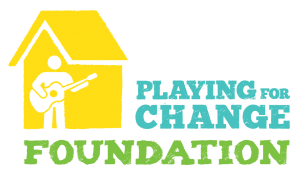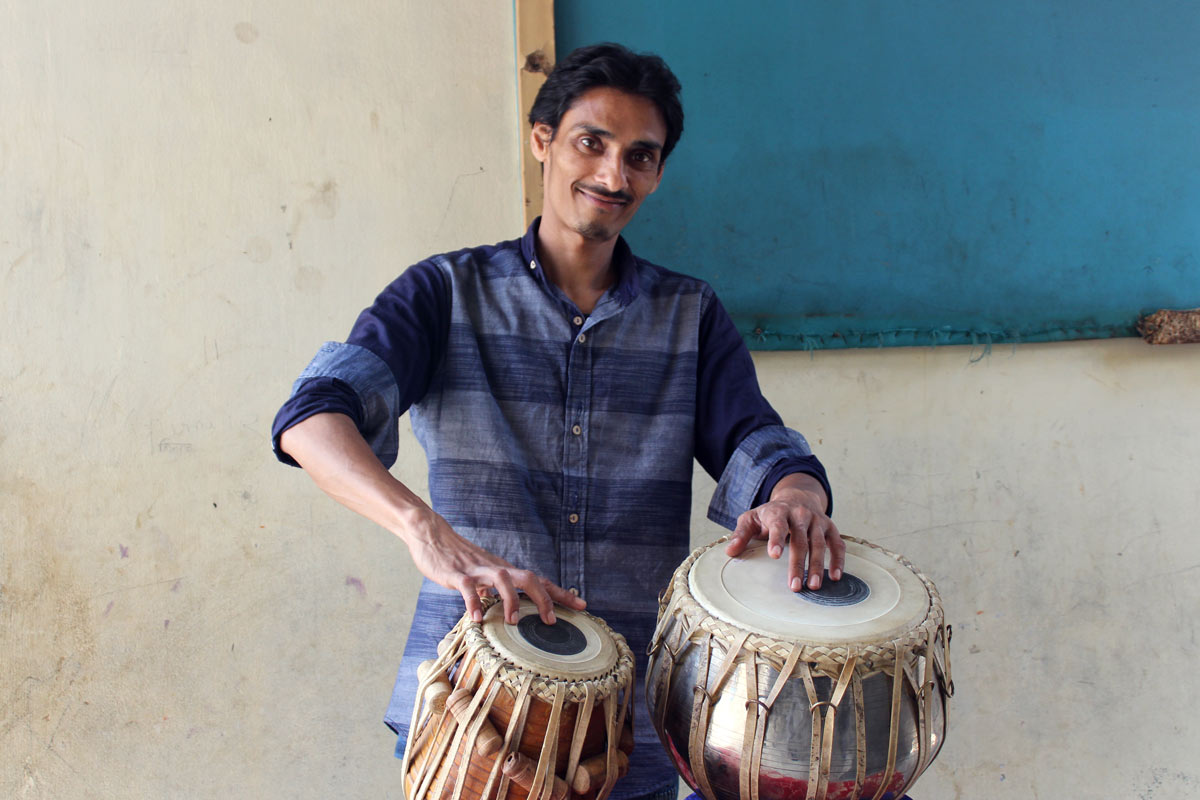Culture and environment are very intertwined here in M’hamid. The weather turns from blistering hot in the summer (reaching 130 degrees Farenheit regularly in July and August) to sandstorm season in March and April, which helps to propagate the date palm trees, the economic power in the region. Climate change is a very real presence locally, with little access to water becoming normal, and the encroachment of sand dunes onto precious farmland happening right now, working to disperse not only communities, but ancient traditions with them.
In M’hamid there is a great importance placed on the community and people moving together in groups. Whether it be families of 10 living under the same roof eating from the same central Tagine dish for their meals, or the ritual of preparing and sharing tea with whomever may be around, foreigner or local, the sense of inclusion is vital to the community. The passing down of music and poetry from generation to generation is another vital aspect of the community, as art and tradition serve as reassurances in a constantly changing world. It is the role of the youngest generation to learn from the past to bring the traditional Saharan art into future, so at to coexist with the modern.

